Artificial intelligence (AI) has become a framework of innovation, and venture capital (VC) firms increasingly recognize its transformative potential. According to McKinsey & Company, while nearly every organization invests in artificial intelligence (AI), only 1% feel they have achieved advanced maturity in its application. This highlights the challenge businesses face in turning AI investments into actual results.
Although the worldwide Artificial Intelligence market is expected to reach $200 billion by 2025, many organizations are still learning to extract measurable value from their AI initiatives. The secret to unleashing AI’s potential lies in aligning its use with core business objectives and focusing on high-impact, practical applications. Beyond the hype, companies must also follow moral, environmentally friendly policies to ensure long-term success. For VCs, this means identifying startups that innovate and align with sustainable and ethical growth strategies.
Generative AI has been a significant factor of recent growth, and it is essential to remember this as AI’s return on investment (ROI). In 2023 alone, generative AI accounted for 48% of all AI-related funding, a far greater share than in any prior year. These numbers highlight the growing importance of AI in improving automation, decision-making, and driving efficiency. However, achieving tangible business impact requires strategic planning, cross-departmental collaboration, and a focus on measurable outcome areas where venture capital can play a significant role.
Practical Steps to Maximize ROI from AI
To maximize the return on investment (ROI) from AI, businesses must adopt a strategic approach that aligns AI initiatives with core business objectives. This includes understanding the latest trends and technologies in AI, such as generative AI, which made up 48% of all AI-related funding in 2023, reaching $44.89 billion globally.
- Building a strong foundation for success
Building a strong foundation is significant for achieving success with AI. Companies with high ROI from AI projects often implement robust data management systems, track outcomes rigorously, and address privacy and ethical concerns. For instance, Deloitte reports that companies achieving high ROI (over 5%) from AI projects typically invest heavily in data quality management.
High-quality data is the foundation of AI, and companies must invest in cleaning and organizing their data to ensure accurate insights. Moreover, ethical AI practices are essential for building investor trust and minimizing risks. Employee training is also crucial to ensure smoother adoption and maximizes productivity. A study by McKinsey found that companies that invest in employee training see a 25% increase in productivity when implementing AI solutions.
For venture capital firms like Auxin VC, supporting startups with strategic funding and mentorship ensures they have the resources to develop strong data systems while maintaining ethical standards. Auxin VC promotes sustainable growth and long-term success by empowering emerging startups with these foundational tools.
- Let’s focus on Impact
Prioritizing high-impact use cases is essential for maximizing AI’s ROI. One of the most impactful areas is customer service and experience. AI-powered chatbots and virtual assistants are transforming customer interactions, with 74% of companies reporting improved customer satisfaction through conversational AI tools in 2023. The chatbot market is projected to grow to $27.2 billion by 2030, reflecting its increasing importance across industries.
For example, companies like Amazon have significantly improved customer satisfaction by leveraging AI-driven customer service platforms. Additionally, predictive analytics helps businesses make data-driven decisions, optimize operations, and reduce costs. Manufacturers using predictive maintenance algorithms can prevent costly equipment failures, saving millions annually. In the automotive sector, predictive analytics has reduced maintenance costs by up to 30%.
- Scaling AI for business growth
Scaling successful AI experiments is essential for maximizing ROI. Organizations that use AI in their core business strategy see transformative results. According to PwC’s 2024 Pulse Survey, nearly 49% of technology leaders reported that AI was fully integrated into their organization’s strategy. This integration leads to incremental gains across multiple areas, such as productivity (20%-30%), speed-to-market improvements, and revenue growth.
Using cloud platforms accelerates AI deployment by providing scalable infrastructure. Cross-departmental collaboration ensures that AI solutions are tailored to diverse business needs. Continuous monitoring is also crucial, allowing companies to evaluate scaled solutions’ performance and regularly identify improvement areas. For instance, many organizations have seen significant productivity gains by integrating AI.
Auxin VC can facilitate this scaling by investing in startups that develop scalable AI solutions. This will enable them to expand their reach and impact across various industries.
- Measuring AI success
Measuring AI’s ROI requires a comprehensive approach beyond immediate financial returns. Businesses should consider both tangible and intangible benefits. Direct metrics include cost savings from automation, revenue growth from personalized marketing, and productivity improvements. For example, a recent benchmarking study found that organizations achieving high ROI from AI projects often precisely track these metrics.
Indirect metrics, such as improved customer satisfaction, employee engagement, and strategic advantages like faster decision-making, are also important. Quantifying non-financial benefits like innovation potential is equally crucial. A study by Accenture found that companies that measure both direct and indirect metrics see a 15% higher ROI from their AI initiatives compared to those that focus entirely on financial metrics.
Auxin VC can help startups develop strong ROI measurement frameworks by providing strategic guidance and resources, ensuring they accurately track the impact of their AI investments.

The Future of Venture Capital in AI
Artificial intelligence (AI) reshapes industries, drives innovation, and offers significant opportunities for businesses and venture capital firms. However, realizing AI’s full potential requires aligning AI investments with business objectives, focusing on measurable outcomes, and adopting ethical and sustainable practices. For venture capital firms, supporting startups that leverage AI to deliver a tangible return on investment (ROI) is significant in supporting innovation and long-term growth.
Auxin VC demonstrates this approach by empowering emerging startups with strategic funding and mentorship to successfully guide the evolving AI environment.
Let’s explore future trends
As we are firmly in 2025, several emerging trends will shape how businesses benefit from AI. Multi-modal AI combines diverse datasets for deeper insights, and agentic AI enables automated systems to perform tasks independently. As organizations find actual outcomes in their investments. Generative AI will continue to grow, with a budget expected to increase by 60% from 2025 to 2027. Organizations will focus on customized GenAI applications tailored to specific industries and workflows.
Additionally, regulatory changes favoring self-governance may accelerate innovation in sectors like AI risks and ensure ethical use. These trends will promote innovation and efficiency and offer venture capitalists opportunities to invest in scalable AI solutions that deliver measurable ROI.


